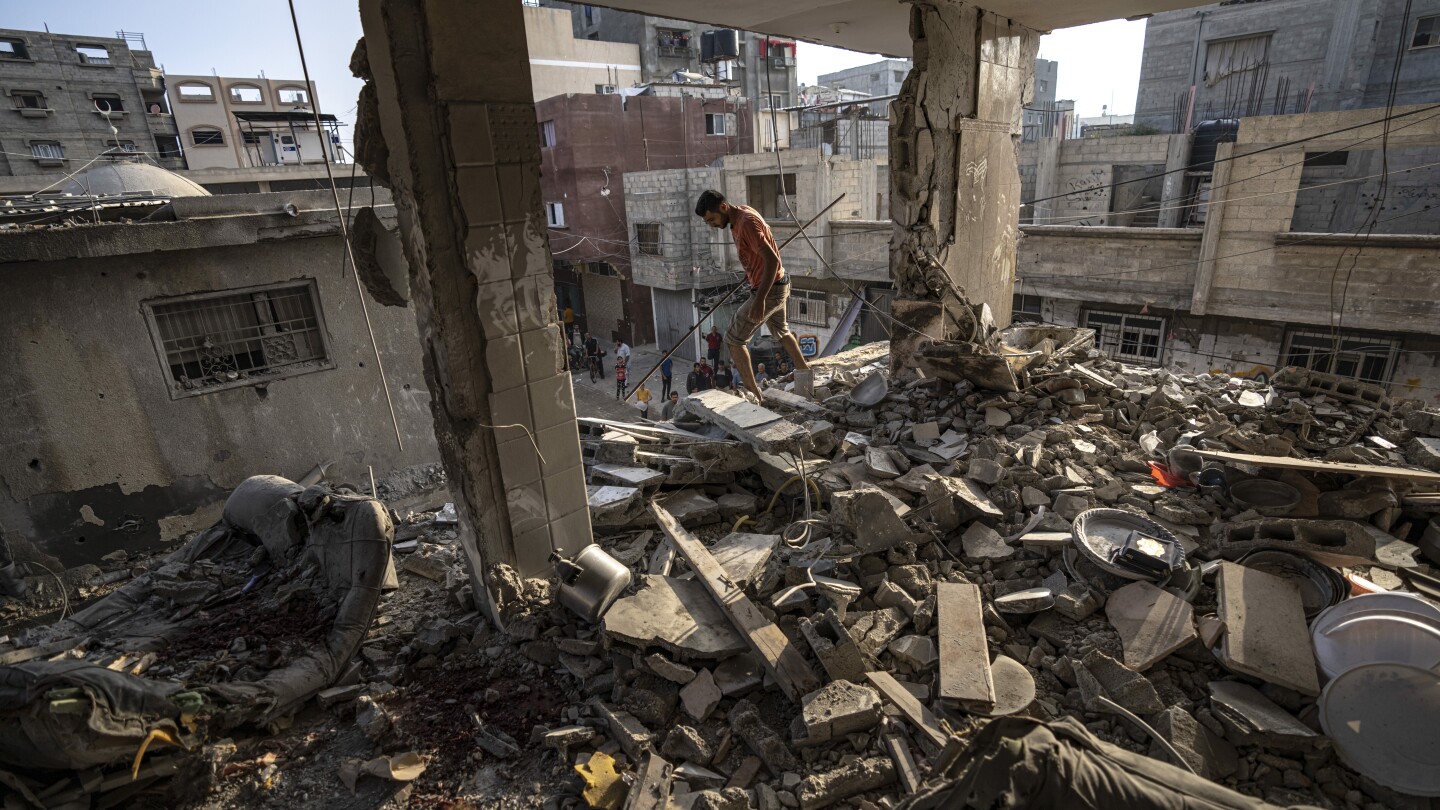KHAN YOUNIS, Gaza Strip (AP) — In an effort to improve the humanitarian situation in Gaza and protect Palestinian civilians, the United States called on Israel on Friday to increase the delivery of aid to the region. At the same time, Israel’s Prime Minister stated that there would be no cease-fire until hostages held by Hamas are released. The leader of the Hezbollah militant group, which is backed by Iran, also heightened concerns by promising further attacks along the Lebanon border.
Israel has been intensifying its encirclement of Gaza City, targeting Hamas militants who initiated the war by attacking Israeli communities. However, there are fears that the conflict could expand beyond Gaza, as Israel and Hezbollah have exchanged fire along the Lebanon border.
In his first public speech since the war began, Hezbollah leader Hassan Nasrallah indicated that his group is involved in the conflict. While he did not announce full engagement in the war, he suggested the possibility of escalation. The US Secretary of State, Antony Blinken, during his visit to Israel, reiterated America’s support for the country’s right to defend itself. However, he stressed the need for a “humanitarian pause” to address the growing crisis in Gaza and increase aid to Palestinian civilians. Blinken also emphasized the importance of restoring the path toward a two-state solution.
Hezbollah, an ally of Hamas, attacked Israeli military positions in northern Israel, prompting retaliation from the Israeli military. The US is committed to preventing any further fronts from opening in the conflict involving Hezbollah, using the forces deployed in the eastern Mediterranean. Nasrallah dismissed US warnings, stating that they will not be intimidated by American fleets.
A potential war between Israel and Hezbollah could have devastating consequences for both countries. Hezbollah is a stronger force than Hamas, possessing a large arsenal of rockets and missiles, some of which can strike deep into Israel. Israel has warned that it would cause massive destruction in Lebanon if an all-out war erupts.
According to the Gaza Health Ministry, more than 9,200 Palestinians have been killed, primarily women and minors, and over 23,000 wounded since the start of the conflict. On the Israeli side, over 1,400 people have died, mostly civilians killed during Hamas’ initial attack, and 5,400 have been injured. The war has claimed the lives of 24 Israeli soldiers and one civilian. In addition, there have been several incidents along Israel’s border with Lebanon, resulting in the death of seven Israeli soldiers and one civilian.
During his visit, Blinken expressed unwavering support for Israel and its right to defend itself. He proposed a temporary pause in the fighting to allow aid to reach the Palestinians and for those with foreign passports and the wounded to leave Gaza. Israel has allowed some aid trucks into Gaza; however, it has refused to allow fuel in, citing concerns that Hamas would misuse it.
While the situation remains tense, Israeli forces have now encircled Gaza City, targeting Hamas military infrastructure. Israeli forces are engaged in face-to-face battles with militants and have been inflicting heavy losses on Hamas fighters and destroying their infrastructure.
As casualties continue to mount, the United Nations has reported that four of its schools-turned-shelters in northern Gaza have been hit, resulting in the death of 24 people.
Correction: The Palestinian injury toll in Gaza has been corrected to over 23,000, according to the Health Ministry.


